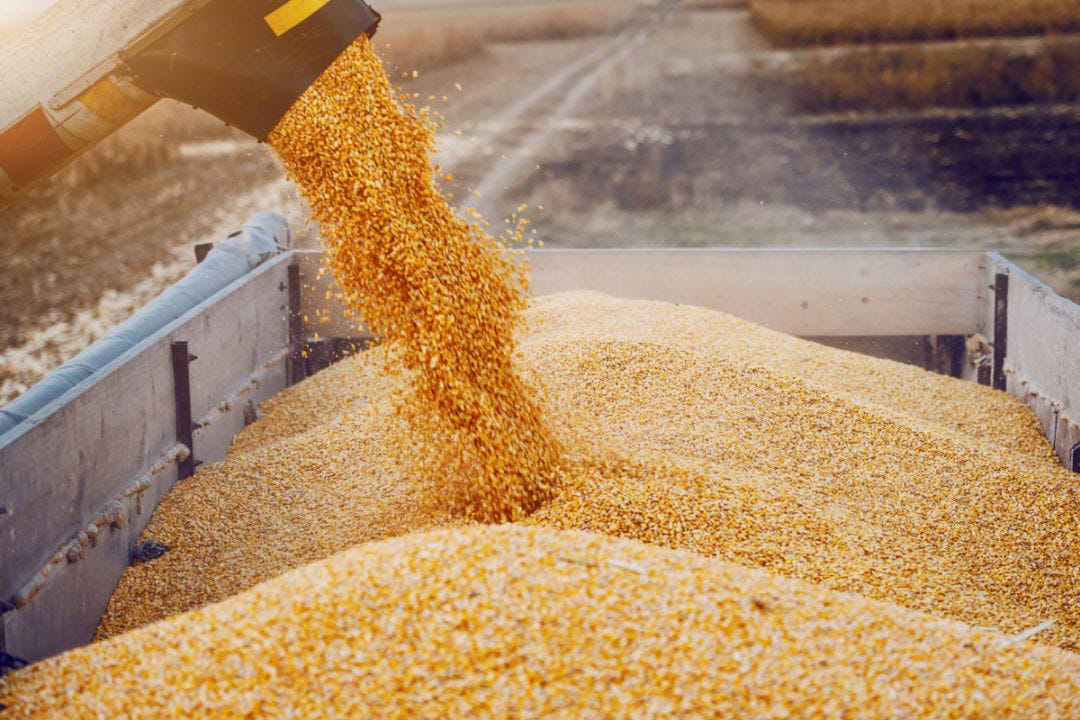Emerging Markets Daily - December 27
Global Bond Winners 2021: Emerging Markets, China Foreign Listings Rules, UAE to Merchant Families: Open Up Competition, Pakistan and Crypto, Global Grain Prices
The Top 5 Stories Shaping Emerging Markets from Global Media - December 27
Global Bond Winners From 2021 All Came from Emerging Markets
Bloomberg
“Emerging-market bonds were supposed to be dragged down this year as central banks moved toward withdrawing stimulus. Instead, the best-performing global debt was all from developing nations.”
“Sovereign bonds issued by South Africa, China, Indonesia, India and Croatia topped the rankings of 46 markets around the world in 2021, according to data compiled by Bloomberg through last week. They alone managed to shrug off the biggest annual jump in U.S. Treasury yields since 2013, a shock that was powerful enough to upend currency carry trades and emerging-market stocks.”
“The positive returns generated by the five markets should give investors at least some confidence the Federal Reserve will be able to wind down asset purchases and start to raise interest rates without triggering a spike in global volatility. A deeper look into 2021 performance shows the top performers have mostly fallen in price, but coupon returns were high enough to offset these losses.”
“Emerging-market bonds as a whole have dropped 1.3% in 2021, a separate Bloomberg index shows. That is still far better than they did during the so-called taper tantrum of 2013, when the Fed’s signal it would cut asset purchases saw them decline 3.8% over the year, including a slump of 11% from a high in May to a low three months later.”
“Coupons and interest-rate differentials will ‘play a strong part’ in investment decisions in a tightening environment in 2022, said Shafali Sachdev, head of fixed-income, currencies and commodities for Asia at BNP Paribas Wealth Management in Singapore. ‘Investing in select emerging-market bonds may be a preferential way to achieve this, rather than lengthening duration or going down the credit curve.’” Bloomberg reports.
Investors Relieved as China Offers New Clarity on How to List Companies Abroad
South China Morning Post
“Investors are likely to cheer a new rule proposed by China’s market watchdog on stock offerings by local companies in offshore markets, potentially removing a major regulatory overhang hobbling the nation’s biggest tech stocks.”
“The China Securities Regulatory Commission (CSRC) said it will allow companies to sell shares overseas as long as they register their plans with regulators, according to a draft released on December 24. It also allows mainland-incorporated firms to directly list overseas without the need for a so-called variable-interest entity (VIE) structure if they meet compliance requirements.”
“The draft, published online to solicit public opinion through January 23, could douse months of speculation that authorities would ban VIE-type of listings. The VIE controversy has abetted a sell-off that erased more than US$1 trillion of value in Chinese stocks amid scrutiny by US regulators.”
“‘The draft rule ends months of speculation about China’s stance on VIEs, and it turns out to be friendly to those cash-starved tech companies and foreign funds,’ said Cao Hua, a partner at private-equity firm Unity Asset Management. ‘At least companies that previously looked to list shares abroad via the VIE structure can stick to their fundraising plans and focus on business growth.’”
“The move could also inject some confidence in Hong Kong’s stock market, the world’s worst performer this year, and the bourse operator Hong Kong Exchanges and Clearing, a key IPO venue after New York. The local market is shut for a public holiday on Monday and will resume trading on Tuesday.” SCMP reports.
UAE Pushes Merchant Families to Open Up Competition
Financial Times
”The United Arab Emirates government has told some of its biggest business families that it intends to remove their monopolies on the sale of imported goods as the Gulf state deepens economic reforms in an effort to attract more investment.”
“For decades, multinationals have had to appoint local partners to distribute their goods. The government has proposed legislation ending the automatic renewal of existing commercial agency agreements, giving foreign firms the flexibility to distribute their own goods or change their local agent on contract expiry.”
“‘It no longer makes sense for individual families to have such power and preferential access to easy wealth,’ said an Emirati official. ‘We have to modernise our economy.’ Officials have indicated that the new law is expected to be approved by Emirati leadership but the timing remains uncertain. The UAE government did not provide comment.”
“The proposed reform would tear up the longstanding social contract between the government and influential merchant families, including storied names such as Al Futtaim, Al Rostamani and Juma Al Majid, replacing decades of protection for local interests in favour of foreign entities. ‘This is one of the taboos most difficult to touch due to its impact on family-owned local businesses, one of the largest sectors of the UAE economy,’ said Habib Al Mulla, executive chair of law firm Baker McKenzie’s Middle Eastern branch.”
“Family-owned businesses, from small companies to the conglomerates built over the decades by leading merchant groups, make up 90 per cent of the UAE’s private sector, which itself accounts for around three-quarters of employment. The changes are part of the UAE’s drive to attract more investment via competitive legal and social changes, such as long-term residency programmes and fewer restrictions on cohabitation and alcohol.” Simeon Kerr reports.
Pakistanis Own $20 Billion in Crypto, Larger than National Reserves
Arab News
“Cryptocurrencies and property remained top-performing assets in Pakistan this year, with the country recording about $20 billion in cryptocurrency value in 2021, an amount in excess of current federal reserves, according to new research studies.
The central bank declared in 2018 that virtual currencies such as Bitcoin were not legal tender issued or guaranteed by the government. But despite not being recognized by the State Bank of Pakistan, interest in cryptocurrencies has been on the rise.”
“The country ranked third in the Global Crypto Adoption Index in 2020-21, after India and Vietnam. ‘Pakistan recorded around $20 billion of cryptocurrency value in 2020-21, showing an abnormal increase of 711 percent,’ the Federation of Pakistan Chamber of Commerce and Industry, the country’s top trade body, said in a new research report. The central bank has not commented on the FPPCI’s findings so far.”
“Cryptocurrencies have thrived during the coronavirus pandemic, the federation said, adding: ‘The biggest crypto exchange used by Pakistani investors is Binance, which is headquartered in Cayman Island, whereas other renowned platforms include Localbitcoins.com, Binomo and others.’”
“About 67 percent of crypto investors in Pakistan use centralized services, whereas only 33 percent use decentralized financing platforms for crypto-related transactions.” Arab News reports.
Grain Prices Headed for More Volatility in 2022
Wall Street Journal
“A banner year for grain prices has U.S. farmers aiming to plant even more corn, wheat and soybeans than they did in a record 2021. But high fertilizer prices, forecasts of more wild weather and the threat that China slows its buying loom over the year ahead.”
“Row crops this year soared to multiyear highs amid surging global demand and inflation, and farmers are expected to increase planting to attempt to capitalize on 2021’s momentum. Research firm IHS Markit this month forecast that farmers will plant roughly 230 million acres of soybeans, wheat and corn in 2022, up 2 million acres from the past year’s record-busting levels.”
“Analysts project that grain prices in 2022 will back off, as global supplies catch up to demand. Prices have eased since reaching highs in May but remain at levels unseen in eight years. Year-to-date, corn futures trading on the Chicago Board of Trade are up 25%, and wheat futures are up 27%. Soybeans, up over 2% for the year, started 2021 at their highest levels since 2014.”
“Several factors may bring more volatility to prices in 2022. Analysts and investors said geopolitics may be the biggest factor, with tensions between the U.S. and China and the buildup of Russian troops along its border with Ukraine threatening to add uncertainty to global trade.” WSJ reports.
“Do your little bit of good where you are; it's those little bits of good put together that overwhelm the world.” - Desmond Tutu





